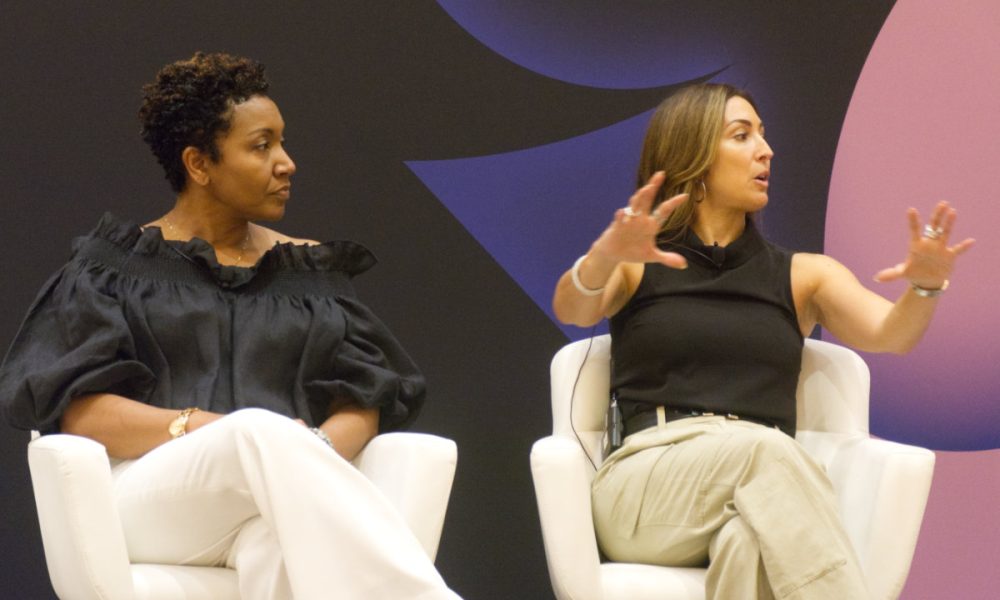According to panelists on the “Five Reasons Why Diversity, Equity, and Inclusion Matters” education session Monday at the Global Gaming Expo, DEI initiatives can be defined in many ways. But all the good intentions regarding diversity, equity, and inclusion don’t matter if one essential criterion isn’t present.
“Belief has to be all the way up at the top of the executive team,” said DraftKings Vice President Global Communications & CSR Sabrina Macias. “And that has to be fostered all the way down.”
Macias added that DraftKings reaches out to empower employees through business resource groups. But her message was clear: C-suites must set the tone for DEI initiatives or they’re destined to fail.
Moderator Cait DeBaun, the American Gaming Association’s Vice President, Strategic Communications and Responsibility, stated that the gaming industry does much better on DEI than the hospitality industry and other sectors in the economy concerning diversity of race and ethnicity, although “there’s still some work to do on gender alone.”
But it’s important, DeBaun said, to start conversations in order to evaluate what DEI means for the gaming industry and to continue to emphasize its importance.
Tracey G. Wiley, Bally’s Executive Director of Diversity, Equity, and Inclusion, said letting employees know how DEI initiatives can influence their personal trajectories and defining what diversity, equity, and inclusion mean in company policies are critical.
“The leadership component has been a foundational first piece for us,” Wiley said. “Complemented by that is allyship, letting folks know that while people sit in defined segments of our employees’ base, not everybody will and not everybody will want to, and that’s okay too. So it’s having the opportunity to let those folks know that allyship is just as important as what we’re trying to define around DEI.”
Wiley came to Bally’s after working for nonprofit organizations and with the state of Virginia as Director of the Department of Small Business and Supplier Diversity. Thus, she looks at DEI from a “vendor community perspective” and has yet to see challenges to initiatives in her new role, “although I know that they’re waiting, lurking for me,” she says. “Someone is going to say no to you once a week about something around DEI; if not, you’re probably not doing a lot.”
For Macias, one challenge has been the very nature of DraftKings, a technology company. She noted that tech hasn’t always been at the forefront of diversity and inclusion and when combined with sports, as DraftKings does, there’s another hurdle to be surmounted. But she views any such perceptions as a chance to effect change.
‘The opportunity is in changing that perception and trying to create awareness around the opportunities that exist within the industry, what the inside of our companies look like,” Macias said. “For a long time, we were kind of hesitant to show that makeup of who are employees are and that was a disservice to the industry, because when you look inside the doors, you do see a welcoming diverse environment.”
Wiley said it’s important to create an “atmosphere of access” in order to show the diversity of gaming-industry workers. It’s not enough, she believes, for a company to merely say it is inclusive or diverse.
“People of color, people with disabilities, veterans, the LGBTQ community, all the communities that want to look inside, they may not have ever been able to see themselves in these roles,” Wiley said. “So that’s the exciting part about what I’m experiencing at Bally’s right now. I’ve been there only two years, so I can’t take any credit for it, but I’m excited that it’s happening.
“Our company looks really good in terms of its governance. Our chairman, Soo Kim, and our CEO, Robeson Reeves, are both people of color. Five out of nine of our board directors are women or people of color. And I don’t think it’s an accident. It’s happening organically.”

